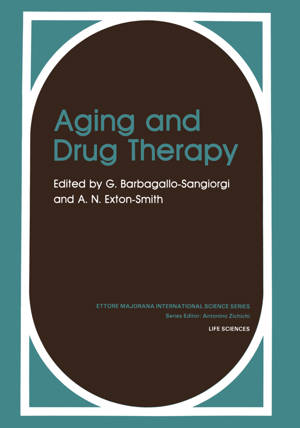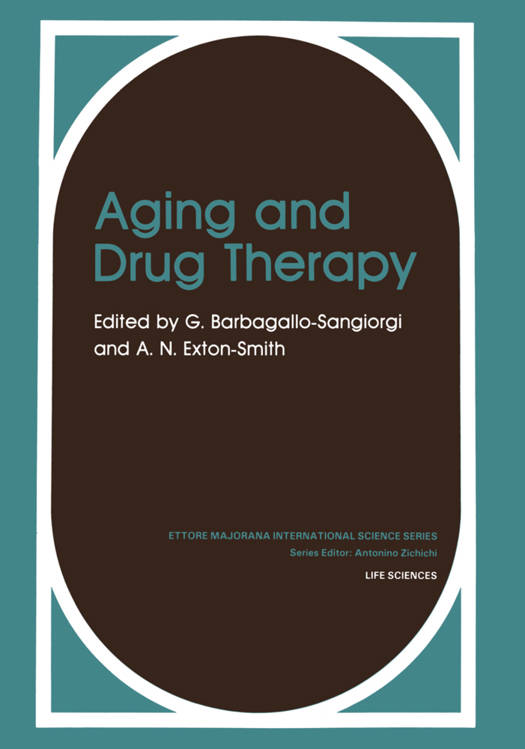
Door een staking bij bpost kan je online bestelling op dit moment iets langer onderweg zijn dan voorzien. Dringend iets nodig? Onze winkels ontvangen jou met open armen!
- Afhalen na 1 uur in een winkel met voorraad
- Gratis thuislevering in België vanaf € 30
- Ruim aanbod met 7 miljoen producten
Door een staking bij bpost kan je online bestelling op dit moment iets langer onderweg zijn dan voorzien. Dringend iets nodig? Onze winkels ontvangen jou met open armen!
- Afhalen na 1 uur in een winkel met voorraad
- Gratis thuislevering in België vanaf € 30
- Ruim aanbod met 7 miljoen producten
Zoeken
Omschrijving
One of the greatest advances in Geriatric Medicine during the last quarter of a century has been the increased realization of the possibilities of treatment for elderly patients. Neglect has been replaced by a more optimistic therapeutic endeavour and countless old people have benefitted from this approach. But there is also a drawback, and this is the risk of hazardous side effects of medication which are often directly proportional to the biological potency of the drug and may be unpredictably increased due to changes in the senile organism. In fact the anatomical and biological changes in old age alter both the kinetics of most drugs and the receptor response. On account of these changes the individual tolerance of aged patients to drug therapy may be quite different from that of younger subjects. Thus for a variety of reasons elderly patients receive more drugs, but they are at a higher risk of encountering adverse reactions, which often show atypical clinical features. We can therefore speak of "geriatric iatrogenic disorders" and point out that some of these side effects are determined by a complex pathogenesis due to the particular pathophysiological condition in the elderly. It is important to encourage the habit of individ- ually evaluating potential risk versus expected advantages of drugs in keeping with the same principles adopted in the evaluation of cost/benefit ratio.
Specificaties
Betrokkenen
- Auteur(s):
- Uitgeverij:
Inhoud
- Aantal bladzijden:
- 523
- Taal:
- Engels
- Reeks:
- Reeksnummer:
- nr. 15
Eigenschappen
- Productcode (EAN):
- 9780306417399
- Verschijningsdatum:
- 1/09/1984
- Uitvoering:
- Hardcover
- Formaat:
- Genaaid
- Gewicht:
- 1049 g

Alleen bij Standaard Boekhandel
+ 201 punten op je klantenkaart van Standaard Boekhandel
Beoordelingen
We publiceren alleen reviews die voldoen aan de voorwaarden voor reviews. Bekijk onze voorwaarden voor reviews.











